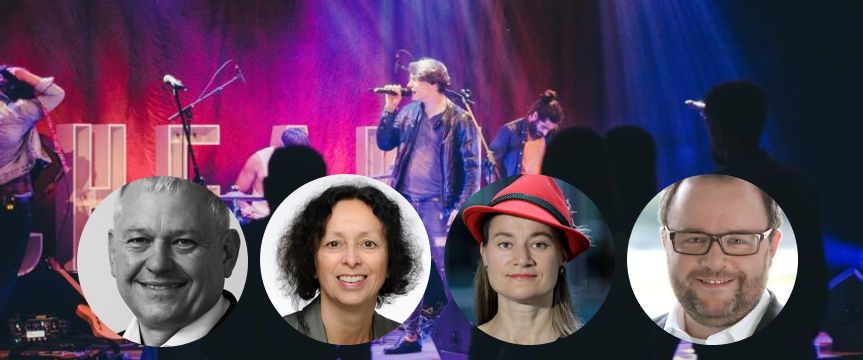
Guest Contribution from Margit Stumpp, Member of the Bundestag (Alliance 90/The Greens), Anke Domscheit-Berg, Member of the Bundestag (The Left Party), Thomas Hacker, Member of the Bundestag (FDP, liberal party), Dr. Christian Jung, Member of the Bundestag (FDP, liberal party)
Radio frequencies play a decisive role in ensuring whether a state can provide its citizens with information securely in the event of a disaster. The current global pandemic shows how important an independent information system is in achieving this. We are referring to broadcasting systems in Germany and Europe which reach their audience directly – terrestrial television and radio cannot be restricted or switched off, as internet broadcasts can be, and also do not encounter any overload problems despite massive use. Terrestrial broadcasting is thus systemically important. One indispensable requirement for terrestrial broadcasting is that the necessary spectrum is available. An essential part of this are the frequencies in the UHF-TV spectrum (470 MHz – 694 MHz), used by broadcasting (currently DVB-T2) and the cultural industries.
Half of the UHF-TV spectrum has been auctioned off in recent years for mobile telephony and is no longer available for broadcasting or the cultural industries. These frequencies are especially well-suited to TV broadcasting, but are also suitable for mobile telephony coverage. In the next few years, a decision will be made on the future of these remaining frequencies, as mobile telephony increasingly requires a greater share of the spectrum. However, in this context it is not only the interests of mobile telephony companies that must be considered, but also the organisation of our open information society in terms of disaster prevention that must be clarified.
We want to ensure that sufficient frequencies are available in the long term for terrestrial television via DVB-T2 and the 5G Broadcast technology of the future. This usage also includes that of wireless microphones for producing content. The UHF-TV frequencies are essential for this. That is why we are against allocating the remaining UHF spectrum to the mobile telephony sector or other radio services and call for the preservation of terrestrial television broadcasting.
The status of broadcasting is constitutionally protected. It makes a vital contribution towards the availability of neutral information on, for example, the Corona pandemic. Ratings for news programmes corroborate the trust placed in this form of reporting. Alongside newspapers, terrestrial transmission is the secure way for authorities to be able to reliably reach citizens at times of major emergency.
The internet and mobile telephony also need to be able to work everywhere in the event of a disaster. We are currently being made painfully aware of how this is not yet the case everywhere. And yet the root of this problem is not a lack of spectrum. Mobile telephony has far more than one gigahertz of spectrum at its disposal already today. That is significantly more than the amount allocated to broadcasting. The problem is that infrastructure expansion has been neglected. The Federal Government and mobile network operators must take action here in order to achieve improvements.
At the same time, however, there is a need for networks independent from mobile telephony and the internet that will also continue to function in the event of a power cut. This applies to broadcast networks, as well as to the DVB-T2 networks. These terrestrial television networks also allow anyone to watch what they wish, unobserved. That is not the case when media is consumed via mobile networks or the internet.
One further point is that the cultural and creative industries will need to be able to resume their events in the immediate aftermath of the pandemic. The UHF-TV spectrum is the only range that allows wireless production technologies such as radio microphones to effectively penetrate numerous obstacles such as decorations consisting of steel or aluminium structures. This is the only way to ensure that listeners are able to hear artists and musicians without interference.
Above all, preserving the UHF-TV spectrum is sensible at a time of emergency such as the current pandemic. These frequencies also ensure that once the pandemic has passed, millions of cultural events will be able to take place again in Germany – from alternative theatre to processions, from school performances to major summer festivals.
Margit Stumpp, Member of the Bundestag (Alliance 90/The Greens)
Anke Domscheit-Berg, Member of the Bundestag (The Left Party)
Thomas Hacker, Member of the Bundestag (FDP)
Dr. Christian Jung, Member of the Bundestag (FDP)
Source: https://netzpolitik.org/2020/was-die-corona-pandemie-fuer-die-frequenzpolitik-bedeutet
Fotocollage: Büro Dr. Christian Jung MdB

